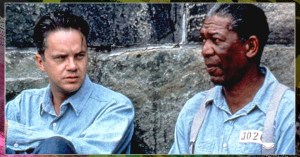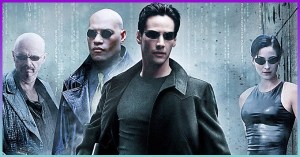Get to Know the Nominees: Regina King for If Beale Street Could Talk
Best Supporting Actress favorite Regina King talks about her earliest roles, her fan favorites (Miss Congeniality 2!), and the movie giving her serious Oscar heat.

(Photo by )
Rotten Tomatoes’ “Get To Know Your Nominees” series will provide an in-depth look at one nominee from each of the major awards categories – the four acting categories, and directing – diving into their highest-rated work from both fans and critics, essential titles from their filmography, and featuring thoughts on their nominated film drawn from an extended interview.
The Nominee: Regina King
For some people, she’ll always be Brenda from 227. Regina King got her first acting credit in the series that starred Marla Gibbs, who had played maid Florence in The Jeffersons, and which ran from 1985-1990. Her performance as Gibbs’ character’s daughter, Brenda Jenkins, is beloved, especially in the African American community. While other actors might be a touch irritated to be best remembered for their earliest work, King is unbothered. These days, that is. “It took a couple years for me to get to the point of not becoming offended by it,” King told Rotten Tomatoes when we sat down with her in November. “but now I’m like, Why would I be offended by that?”
She may not have to bother asking that question soon, with a new role – that of caring mom Sharon in Barry Jenkins’ adaptation of James Baldwin’s If Beale Street Could Talk – quickly becoming her most career-defining, and putting her at the front of the pack of likely Supporting Actress nominees come Oscar time. Last week, she was nominated for a Golden Globe for the role. As she crisscrosses the country promoting the film, all while filming Damon Lindelof’s upcoming Watchmen series for HBO – multiple projects and constant work are par for the course for the actress – we spoke with her about the roles that have led her here, from fan favorites to the most critically adored to those that, like 227, are essential to the Regina King story.
Fan Favorites: A Scene-Stealing Tina Turner Show That Sticks in People’s Minds

With Sandra Bullock in Miss Congeniality 2: Armed and Fabulous. (Photo by © Warner Bros.)
Because of King’s varied filmography, some fans only experience segments of her work. African American fans might recall her from Friday, Boys in the Hood, or Poetic Justice, while others may be more able to place her from her work in The Big Bang Theory, The Leftovers, or Miss Congeniality 2. King says she lets the work decide what to do next. “I want to be a part of a great story, work with creators that are collaborators, that want me, and everyone else involved, to have some ownership and appreciate what we bring to the table,” she says. Perhaps that’s why John Singleton, Shonda Rhimes, Damon Lindelof, and countless others have repeatedly enlisted her services, in front of and behind the camera. Her last directing credit for the season 3 finale of Insecure, “Ghost-like,” was one of the highest-rated episodes of the season.
Her reputation and talent have kept her booked and busy, but to this day it’s the awkward-turned-awesome lip sync of “Proud Mary” from Miss Congeniality 2: Armed and Fabulous, that lives in the hearts of many a fan. It’s not something she would have predicted at the time – the film took a critical beating, with a Tomatometer of 15% – but it’s the one people always stop her to talk about. “When we were shooting that scene,” she recalls, “my son was on set. Sandra [Bullock] was in the peacock, we had all of these Tina Turner drag queens, and when he saw me – he just stopped. The look on his face… [Laughs] It was the most fantastic moment. I had no clue at the time, but that should have been a hint of how [the film] was gonna last forever.”
Certified Fresh Roles: The Heart of Jerry Maguire, and Her First Emmy
“Show me the money!” may be the most often-quoted line from 1996’s Jerry Maguire. And it may be followed closely by the likes of “You complete me” and “You had me at ‘hello.'” But ask us, and none of those is the film’s most memorable moment. That distinction belongs to a scene involving King. Playing Cuba Gooding Jr.’s wife Marcy, and delivering the hell out of Cameron Crowe’s dialogue as her husband lies motionless on the field, King is the heart of the movie. While on the phone with struggling sports agent Jerry [Tom Cruise] after a monster hit on Monday Night Football has laid out her husband, she cries, “My whole life is this family, Jerry, and it doesn’t work without him. Just do whatever you can. Just get Rod to me.”

With Cuba Gooding Jr., in Jerry Maguire.
King had given birth a few months before filming, and what she recalls most about Jerry Maguire is the generosity of everyone on set. “Tom was very much there. I applaud him. He’s an actor’s actor. My son Ian was about a month old, and when [Tom] was doing his side of that scene, I’m at home in a closet doing his off-camera on the phone. [For] my side, he was, I don’t even think in the city at the time, but he was there on the phone. There… for me.” She adds: “It was so beautiful that Cameron wrote a story where the black couple was a partnership, they know who they are and love each other with all of their flaws, and their family with all of their flaws.” (We’d be hard pressed to find any family that would forgive Rod’s naysaying brother TP, but at least Marcy did get a few good slaps upside his head – just for the sake of balance.)
Almost 30 years to the day since her debut on 227, King was finally honored with her first Emmy (for Best Supporting Actress in a Limited Series or Movie) for the Certified Fresh first season of American Crime. Beating out Angela Bassett, Mo’Nique, Kathy Bates, and Sarah Paulson on her first nomination, King was handed the trophy by Empire’s Taraji P. Henson and Terrence Howard, who both looked as pleased as she was about the win. King confessed she thought that a candid op-ed she had written in 2010 for the Huffington Post about the lack of minority representation in television would preclude her from future awards. “I pressed send on that draft believing – knowing – that I was never gonna be recognized by the Television Academy,” she says. Five years later, she was on stage accepting her first Emmy. “When the nomination came, it kind of floored me. I was like, ‘Wow, I was wrong.’ As long as you’re honest and respectful when expressing your feelings, it’s not gonna block the blessing.”
Since then the blessings have kept flowing, with a second Emmy win for American Crime and a surprise win just this summer for Netflix’s Seven Seconds. On stage accepting the award, King was clearly shocked and took a moment to gather her thoughts (the GIF is priceless). She then proceeded with her acceptance speech, remembering to thank Jesus in an echo of a joke told earlier in the night by co-host Michael Che, who said, “Black winners always thank Jesus.”
The Regina King Essentials: The Boondocks and the Role That Could Land Her an Oscar

King voiced Riley in The Boondocks. (Photo by © Cartoon Network / Courtesy: Everett Collection)
When conversation turned to her famous (or perhaps infamous) voice work in controversial animated comedy The Boondocks, King was already way ahead of us. She laughed: “I knew we’d talk about The Boondocks.” Based on Aaron McGruder’s acclaimed comic strip – he also created the show – the Adult Swim series was light years ahead of its time. King voiced the two main characters, both young boys: Riley, the raucous would-be gangsta, and Huey, the bookish and socialist cynic. A memorable episode, in which the boys awaken an alternate-reality version of Martin Luther King Jr. 32 years after a failed assassination attempt, was so divisive it promoted some to call for The Boondocks‘ cancellation. That same episode was later honored with a Peabody.
With its exploration of race and identity politics, it’s almost staggering on a re-watch just how well the show’s dialogue from over a decade ago speaks to current events. “I was always amazed how we were able to stay culturally and socially relevant,” says King. “I don’t know what that says about us as a country. But I’d love to see what both [boys] would say about having a black president.” She says that she and McGruder often talk about the possibility of a return. “The Boondocks voices are missed. That’s the reason why people ask about it all the time, because it’s about Americans, and the people who love Boondocks aren’t just black.”
And that’s a huge part of who King is as a performer: her audience. Black people especially feel a particular kinship, a closeness with her; she’s been so many familiar black women over the years that many think of her as family. She’s our sister in Poetic Justice, our tipsy auntie on a viral appearance on Watch What Happens Live, and now our mom in If Beale Street Could Talk. As Sharon, the understanding and empathetic mother of central character Tish (Kiki Lane), doing everything she can to help her pregnant daughter free her jailed fiancé, King’s performance is exceptional and authentic.

King as Sharon in If Beale Street Could Talk. (Photo by @ Annapurna Releasing)
Sharon is arguably King’s meatiest role yet, and she sits at the center of the movie’s most quietly moving scene. In a wordless moment towards the end of the film, Sharon removes her wig in a defeated gesture that conveys more meaning than pages of dialogue. The camera acts as a mirror: she’s looking right into us. At a recent Q&A, King downplayed her contribution to the scene, but Jenkins quickly corrected her: “I love the way you answered that, but, my dear, please tell them what it is – it was your idea.” She explained the idea to us simply: “That was from my life experience. It was my grandmother and her wigs, how’s she’s wearing her hair at home, and how she’s wearing her hair to run down to the store – or which wig she wears at church.”
When referencing the scene, people often ask her about her awards chances. Is she ready? How is she handling it? When we ask that same question, King replies in a way that could apply to almost all of the credits in her decades-long career. “I’m ready to continue receiving the love when people see this movie – and appreciating what being black in America looks like.”
If Beale Street Could Talk opens in limited release December 14 and is released more widely on December 25. The Golden Globe Awards will be broadcast on January 6, 2019, on NBC.






